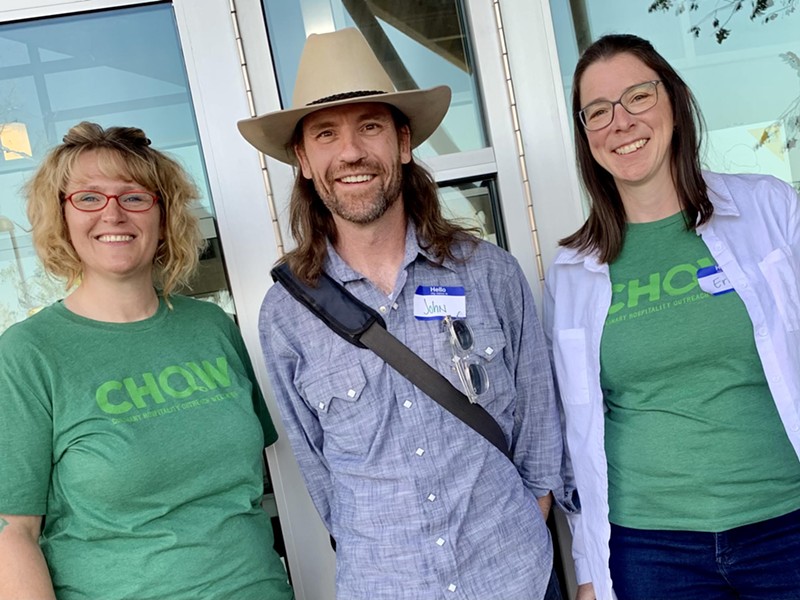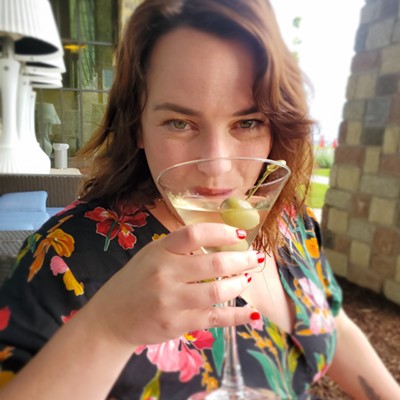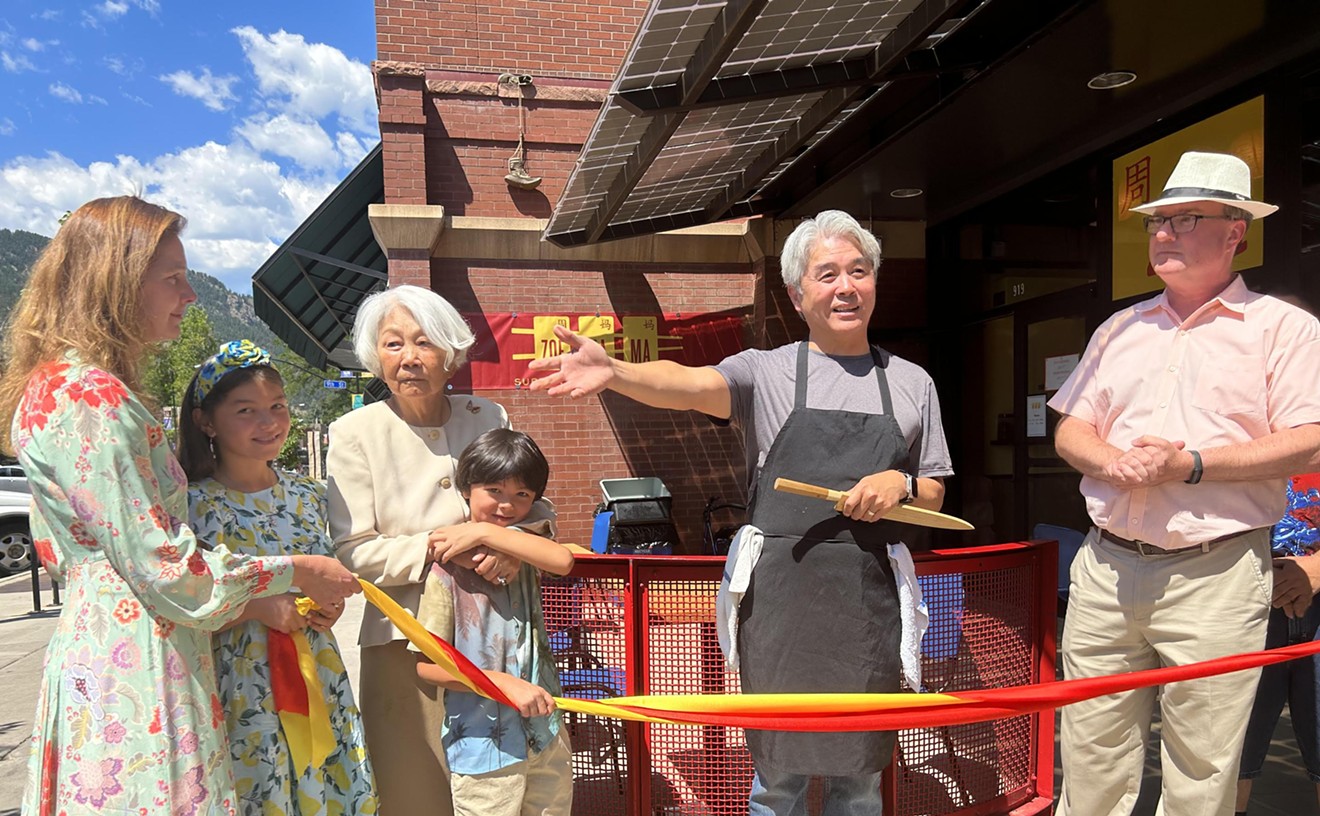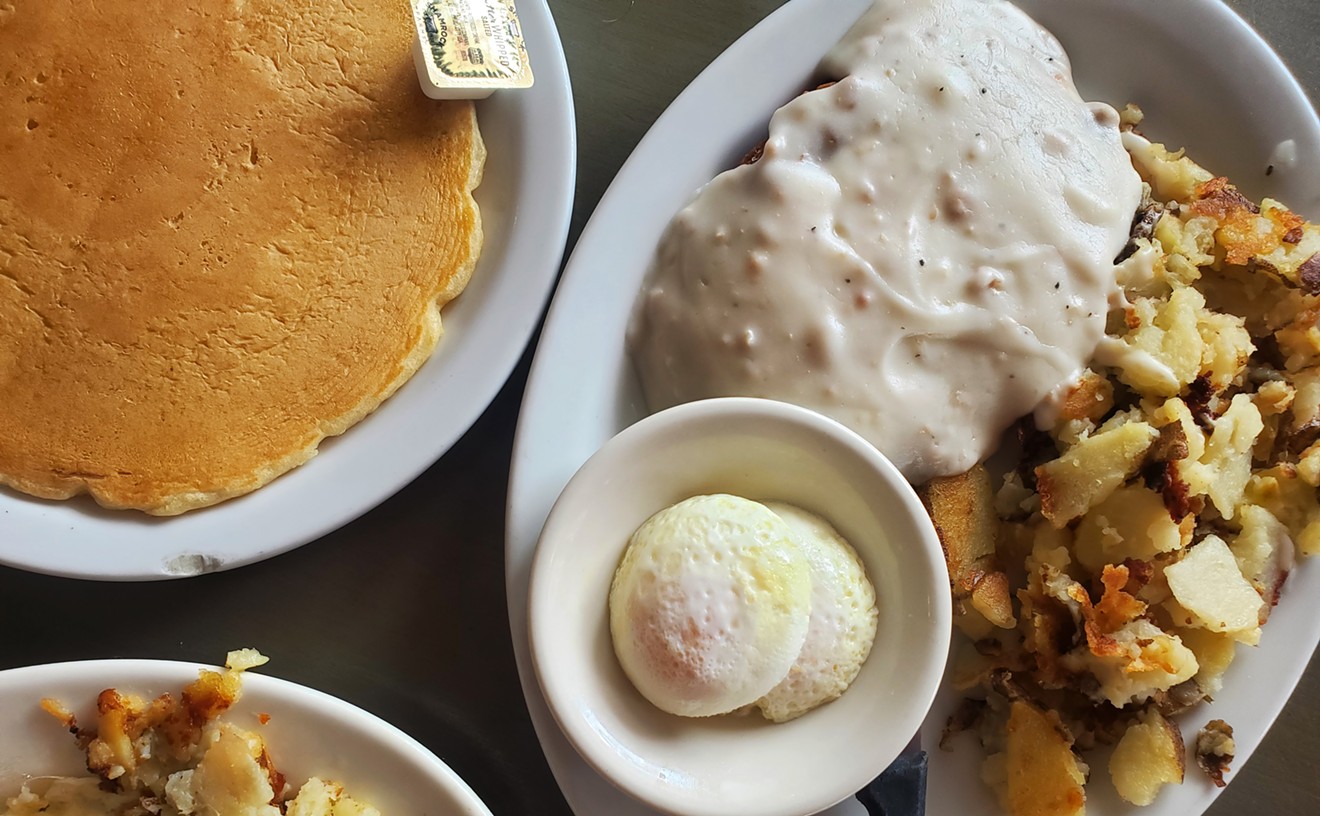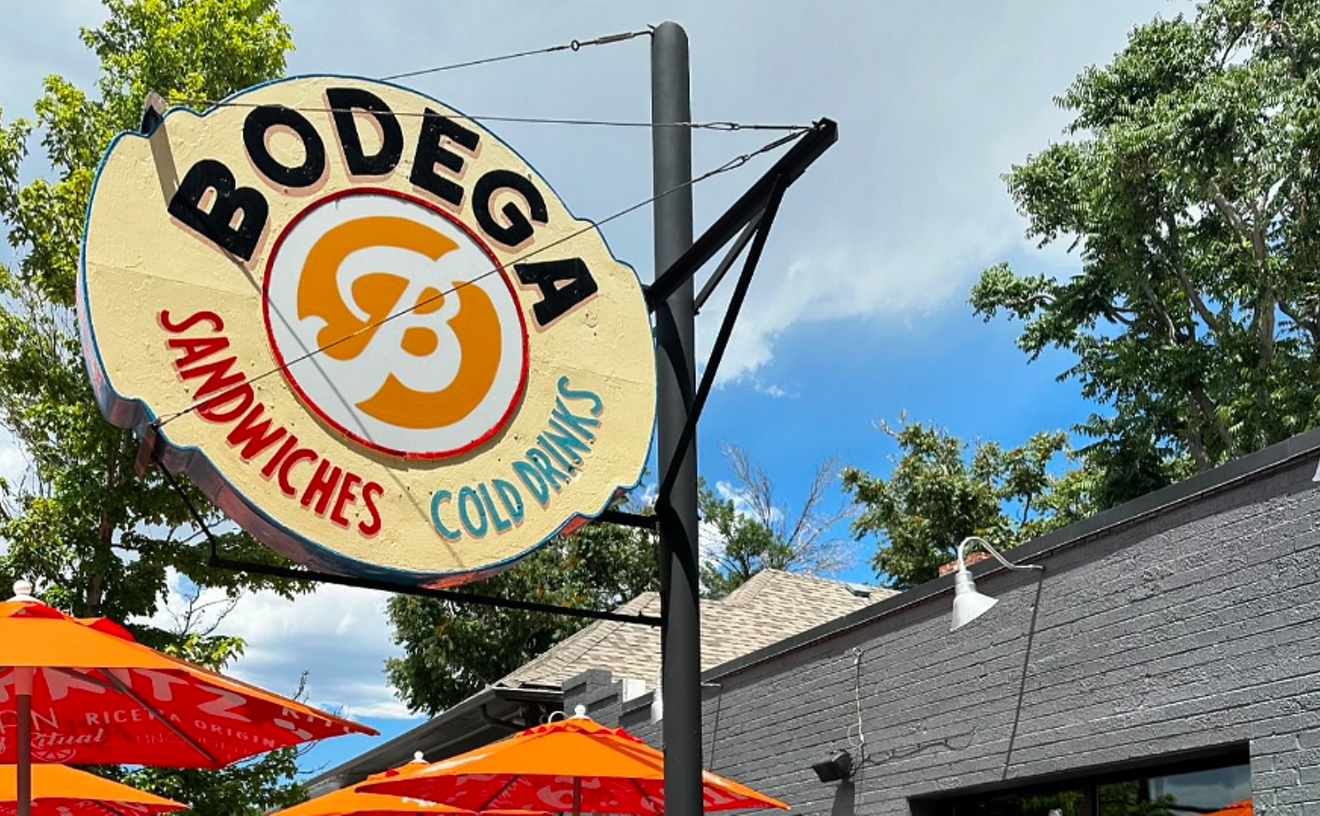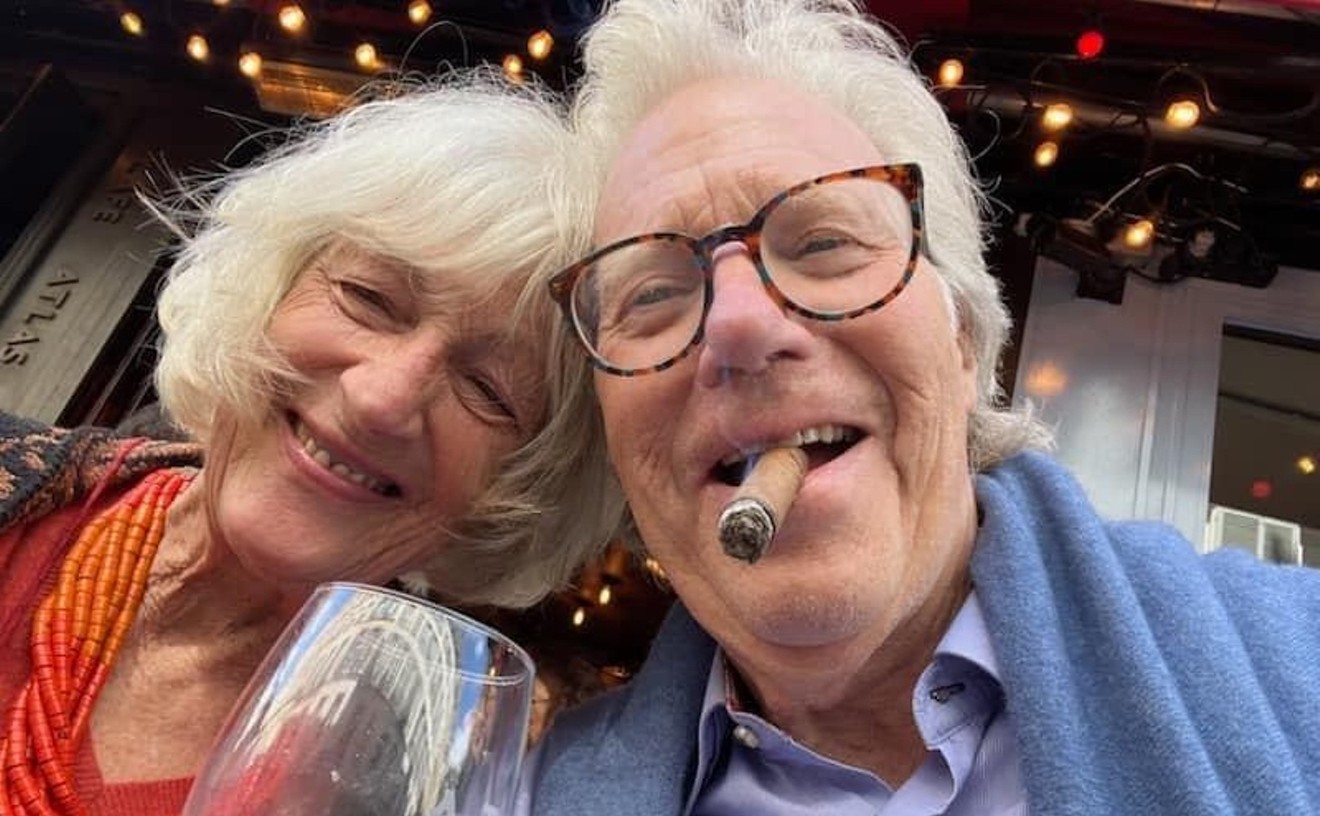John Hinman, owner of Hinman Pie, struggled with alcoholism for years while working as a pastry chef at a number of Front Range restaurants including Vesta, which he helped open in 1997, and some of the Big Red F eateries. Although he got sober for about five years during his time in restaurants, Hinman began drinking again when the gelato shop he'd opened on South Pearl Street closed in 2008 after the recession hit. He was working at a local grocer, running its baking program when, at age 37, "I exploded," he says. "I lost my business, my car, my house, got foreclosed on. Everything, gone. And I was facing a four-year jail sentence."
As fate would have it, Hinman ended up in court for his fourth DUI in front of a judge who believed in rehab over incarceration, though the deal — ninety days in jail and four years of probation — required him to be taken in handcuffs from the courtroom on Good Friday instead of having a week to prepare and to spend Easter with his mom, as he'd thought going in. "They're carting me off," he recalls, "and my poor mother jumps up and shouts, 'But who's going to make the lemon meringue pie!?'"
Hinman can laugh at the story now, while also acknowledging how bad he feels for putting his mother in a position like that. That's part of the healing process, and it reflects the influence of CHOW. The organization got its start in 2018 after Hinman was again sober and interviewed by writer Alex Palmerton for a story on mental health in the restaurant industry. By that point, he'd done several other interviews about his struggles and sobriety. "I was like, 'I don't need another attaboy. Let's do something,'" he says.
So he and Palmerton planned a meeting at Hinman's newly opened bakery, where industry professionals could come together and "talk about where it hurts," Hinman says. "Honestly, I thought no one would show up. None of these type-A people are going to show up and talk about feelings, but at least I tried."
Then, two days before the meeting, news broke of Anthony Bourdain's suicide. For all of Bourdain's popularity, his work particularly spoke to those in the service industry, since he had started in kitchens, working the line; his death hit restaurant workers particularly hard. "Suddenly there were 35 or 40 people at the bakery on a Monday night," Hinman remembers.
Of the many people who spoke that night, one in particular became the catalyst for Hinman to commit to holding weekly meetings. "There was a girl sitting next to me, knitting ferociously," he says. "She got up and she said, 'Well, I'm really happy this was a good meeting, because I decided before I came here that if this was a bad meeting, here was my plan to kill myself tonight.' And that changed everything."
After that, a group would gather every Monday at 5:30 p.m. to talk about the day-to-day struggles in the restaurant industry, from substance abuse to long hours that led to burnout and isolation. The CHOW meetings became a place to connect with other like-minded people. "Restaurant people are uniquely qualified to help each other," Hinman notes, since they have a common understanding of the lifestyle.
Although Palmerton moved on, with the help of Erin Boyle, another longtime industry professional who'd also struggled with mental health, CHOW held its first meeting in Boulder in December 2019. And on January 1, 2020, CHOW officially became a nonprofit with the help of a donation from a group of chefs who raised the funds with a dinner.
But on March 17, 2020, all restaurants shuttered because of COVID-19. "My business was restaurant-dependent," Hinman explains, since his bakery sold bread wholesale to many eateries in town. "I knew staying home all day every day would be the worst possible thing for me."
So when he was contacted by Dan Wyman, then-director of operations for Avanti Food & Beverage, and Thomas Garnick of Brava! Pizzeria to help run Operation Family Meal, Hinman agreed. The three took Hinman's bread truck to restaurants that had closed and picked up all the food that would otherwise have gone to waste. Then, at a commissary kitchen, former Vesta executive chef Nick Kayser took charge of sorting through the food and turning it into meals. Along with many volunteers and restaurant partners, the group fed over 25,000 people that spring.
While Hinman worked to keep hospitality workers fed, he knew that it was essential to keep CHOW meetings going, too, so he moved them to Zoom with the help of Laura Smedley, who had experience running dinners with peer counselors at her farm. "On Monday nights, we'd all make a meal and show it off on Zoom," he says, "and then Laura would show up and we'd talk about gratitude and loneliness. ... She came up with some wonderful topics."
Eventually, CHOW began bringing in industry leaders as well to talk about "not who they cook for or their restaurants or their achievements," Hinman says, "but how they deal with real life." The nonprofit also worked with a group to start a Spanish-speaking meeting. And when Hinman received an unexpected gift from "an angel," the majority of the cash went to teaming up with Khesed Wellness and purchasing 1,000 hours of therapy for restaurant workers.
In August 2020, Hinman officially brought Boyle on as CHOW's executive director; Melinda Dorn, another industry vet who'd been through recovery, came on as outreach coordinator the next month. "CHOW grew, all the right people just showed up at the right time, [and] it was just sort of this perfect storm of goodness," Hinman says, adding that Boyle and Dorn are the ones "really getting the work done."

John Hinman hopes to sell 4,000 pies this Thanksgiving and will be donating a percentage of sales to CHOW.
Jessica Grenier
Hinman Pie now operates out of a commissary kitchen — the one where Operation Family Meal used to make meals for those out of work during the shutdown. Pies are sold at farmers' markets as well as Leevers Locavore, Tony's Market and the Post Chicken & Beer. This Thanksgiving, Hinman wants to donate a portion of the proceeds from the 4,000 pies he's planning to sell to CHOW. "Think about that," he exclaims. "This jailbird is going to be part of 4,000 Thanksgiving tables!"
But as much as Hinman loves what he's doing now in business, he maintains, "It's not about pie. It's about CHOW." On October 5, the group will hold its first Colorado Springs meeting. There are already six other meetings in metro Denver every week, and the message is reaching beyond the state thanks to the virtual meetings that began during the pandemic. "It's just grown," Hinman says. "People are rallying to the cause...and we're getting a lot of visibility."
With restaurants facing staffing shortages and the workers who've stuck with the industry being tasked with picking up the slack, CHOW's mission is more important than ever. "The biggest idea for CHOW is to meet everybody where they're at," explains Hinman, noting that it is not a recovery group, but rather a place to "just come and listen or share.
"It turns out if we just talk about where our source of emptiness is, it gets filled up," he concludes. "And once you start filling that hole in your soul, everything can change from there."

